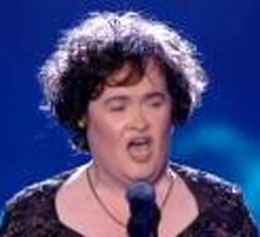Susan Boyle Hospitalized for “Exhaustion” after Britain’s Got Talent Loss

Britain’s Got Talent finalist Susan Boyle was hospitalized, hours after her second place finish, with what was alternately described as “exhaustion” and a “nervous breakdown.” Both of these are nonspecific and non-medical terms which are nevertheless often used to describe situations in which celebrities find themselves. Both terms suggest a condition that prevents the person from function normally.
Anxiety or stress is a normal part of life. It’s part of the body’s security system - making us more alert and ready to respond in uncertain situations. But in many people (some 25 million in the US alone), anxiety becomes a more constant element in their lives. They may display their anxiety in a variety of ways:
- Panic Disorder (more about this below)
- Phobias - an excessive and persistent fear of a specific object, situation, or activity
- Obsessive Compulsive Disorder (OCD) - Obsessions are upsetting and irrational thoughts which keep reoccurring, causing great anxiety. To minimize these obsessions, many people with OCD engage in repeated behavior or compulsions.
- Posttraumatic Stress Disorder (PTSD) occurring in individuals who have survived a severe or terrifying physical or emotional event
- General Anxiety Disorder (GAD) - ongoing, severe tension that interferes with daily functioning. Patients worry constantly and feel helpless to control these worries.
Panic Disorder
A panic attack is defined as the abrupt onset of intense fear that reaches a peak within a few minutes and includes at least four of the following symptoms:
|
|
Since many of these symptoms mimic physical disorders, patients often have repeated physician or emergency room visits before they are diagnosed. It is unknown what causes panic disorders but they usually respond well to medications, talk therapy, or both. Additional measures to reduce stress, including meditation, yoga, biofeedback, and so on are also helpful in reducing anxiety and panic attacks.
Click below for more information
[AMAZONPRODUCT=0380815958]

























0 comments